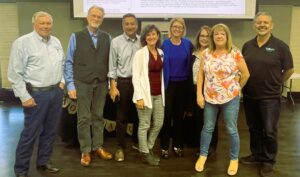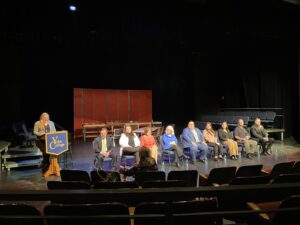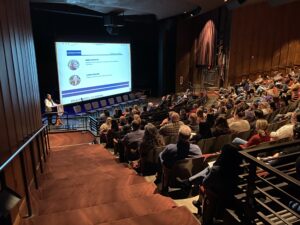
_______________________________________________________________________________________________________________
District Office News
Congratulations on your retirement Chancellor Houpis! Dr. James L.J. Houpis has served as Interim Chancellor since 2021 and will be retiring May 31, 2023. Dr. Houpis was a strong believer in community partnerships, encouraged professional development opportunities, and contributed to the District’s stability. He will be missed. You can read more about the Chancellor and his retirement here. Dr. Dotson will be serving as interim Chancellor from June 1-14, 2023. Dr. Pan will start as the permanent Chancellor on June 15, 2023.

The Board recognized our Student Trustees, Melissa Miller and Arkeisha Johnson –Solomon, at the May 11th Board Meeting for their
dedication and involvement over the past year. They have done an amazing job representing students from Yuba and Woodland campuses. We are excited to announce both will be serving a second term for the 2023-24 year! You can read more on their roles linked here.
______________________________________________________________________________________________________________
Woodland Community College News
On May 11th the Board celebrated the newly tenured staff at Woodland Community College. Academic Senate President, Matt Clark, presented on the staff and there was a reception that followed.

Congratulations to the MESA students, under the guidance of Dr. Lorena Navarro, who will be heading to Alexandria, Virginia in June to participate in the Innovation Challenge Boot Camp! The team will be presenting their project, a Location Emitting Emergency Ring, which uses GPS tracking, live audio feed, and a panic switch to provide safety in a discrete package.
______________________________________________________________________________________________________________
Yuba College News
Congratulations to the students, along with Speech Coach Suzanne Ruckle, who attended Skyline College Speech and Debate Competition on April 29 and earned six medals:
Oral Interpretation of mixed literature:
Second place: Jariyah Lott
Third place: Wendy Taliaferro
Fifth place: Kirstie Taylor
Poetry interpretation:
Fourth place: Wendy Taliaferro
Fifth place: Jariyah Lott
Prose Interpretation:
Fourth place: Heidi Xiong
On May 8, Yuba College and the Yuba City Unified School District held a special presentation for the 54 graduates of our Early College Program. Students were presented with their stoles and honor cords and were recognized for their achievements.

On March 3, Yuba College hosted a Human Trafficking Symposium presented by The Jenna McKaye Foundation. The event was well attended and featured panelists from legal and advocacy backgrounds, local law enforcement, United Nations delegates, and Senator Shannon Grove. You can read more on this important and informative event linked here.


_______________________________________________________________________________________________________________
Fiscal Update
State Budget Update – the May Revision:
The last four budgets in California have prioritized the values of the state while maintaining fiscal resilience and restraint. The Governor’s May Revision reaffirms the commitment to all Californians by focusing on education, environmental protection, workforce preparation, fostering innovation, and investing in critical infrastructure. Despite facing further revenue declines and significant near-term risks, the May Revision manages to uphold these goals without significant reductions compared to the Governor’s January Budget Proposal. However, in the event of broader economic risks materializing, deeper cuts may become necessary.
California’s progressive tax system, with the top one percent of earners contributing nearly half of all personal income tax, has resulted in budget volatility over the years. To maintain budget stability amidst revenue fluctuations, long-term planning is essential. Over the past decade, the Administration and Legislature have safeguarded state programs from major revenue swings through prudent fiscal planning. This includes paying off prior debts, allocating billions of dollars to reserves, and prioritizing one-time investments over ongoing commitments. The state has built significant reserves in the Budget Stabilization Account (BSA), amounting to approximately $22.3 billion. Thanks to this planning, California is better prepared to withstand budget shortfalls compared to previous years.
However, since the release of the Governor’s Budget, monthly revenue shortfalls have persisted, leading to an estimated $9.3 billion budget shortfall in the May Revision. Combined with the initial shortfall, California is now facing a total shortfall of $31.5 billion. Additionally, delays in tax filing deadlines at the federal and state levels due to severe winter storms introduce further uncertainty in revenue projections.
The risks mentioned in the May Revision include the potential economic fallout from a debt limit impasse at the federal level, higher interest rates, uncertainty in financial institutions following regional bank failures, and the delayed tax receipts resulting from the postponed filing deadlines. These risks contribute to the decision not to utilize the Budget Stabilization Account to address the projected shortfall. If economic and fiscal conditions worsen or any of the identified risks materialize, the reserve will help prevent severe cuts to core programs.
While the May Revision does not forecast a recession, the realization of risks and a moderate recession could lead to significant revenue declines compared to the current projections. Based on a moderate recession scenario, revenues could decrease by $40 billion in fiscal year 2023-24 alone, with potential additional declines of up to $100 billion through 2026-27.
To address the additional $9.3 billion budget shortfall, the May Revision adopts a balanced approach. It includes spending reductions and pullbacks, maintains trigger reductions, implements delayed spending, incorporates fund shifts, and includes new revenue and borrowing. The plan avoids significant impacts on programs while closing the budget gap.
The May Revision emphasizes the importance of maintaining substantial reserves. In total, it reflects $37.2 billion in budgetary reserves, including the maximum limit of $22.3 billion in the Budget Stabilization Account. Other reserves consist of $10.7 billion in the Public School System Stabilization Account, $450 million in the Safety Net Reserve, and $3.8 billion in the Special Fund for Economic Uncertainties.
Proposition 98 is a constitutional amendment in California that ensures minimum funding levels for K-12 schools and community colleges (referred to as K-14 schools). The funding levels are determined based on factors such as previous funding levels, General Fund revenues, personal income, and school attendance. The May Revision adjusts the Test 1 percentage of the Guarantee to accommodate enrollment increases due to the expansion of transitional kindergarten. The Test 1 percentage is revised from approximately 38.6 percent to approximately 38.5 percent.
Due to projected revenue decreases in fiscal years 2021-22 to 2023-24, the resources available for K-14 schools under Proposition 98 will also decrease. The estimated funding levels for Proposition 98 are $110.6 billion in 2021-22, $106.8 billion in 2022-23, and $106.8 billion in 2023-24, which is $2 billion below the Governor’s Budget estimates. These figures include property tax increases.
The Governor’s Budget projected a total of $8.5 billion in payments to the Public School System Stabilization Account (PSSSA), but the May Revision increases the amount to approximately $10.7 billion due to higher capital gains revenues. This increase leads to the PSSSA reaching its constitutional cap in the 2023-24 fiscal year.
California Community Colleges Proposed Budget in the May Revision:
The May Revision maintains a focus on the CCC multi-year roadmap, emphasizing equity, student success, and preparing students for California’s future.
To provide flexibility for districts meeting CCC roadmap goals, the May Revision proposes allowing CCC districts to spend flexibly among specific categorical programs, such as the Student Equity and Achievement Program, Student Financial Aid Administration, and Student Mental Health Resources. After five years, the CCC Chancellor’s Office would assess district-level progress toward selected roadmap goals. Districts not making sufficient progress would have their spending authority revoked but would receive technical assistance.
The May Revision also suggests expanding eligible uses of funding for the CCC Strong Workforce Program. This includes providing funds for student grant covering certification and licensing fees, as well as supporting applied and experiential learning in the workplace, including work-based learning programs.
Significant adjustments outlined in the May Revision include:
- Student-Centered Funding Formula (SCFF) Cost-of-Living of 8.22% and Enrollment Growth of 0.50%: Increase of $732.5 million in Proposition 98 General Fund to reflect a change in the cost-of-living adjustment and enrollment growth. Of this, $503 million is funded from one-time resources to support necessary increases in the SCFF despite a reduction in Prop 98 guarantee.
- CCC Categorical Program COLA: Increase of $3 million in ongoing Proposition 98 General Fund to provide an 8.22 percent COLA for select categorical programs and the Adult Education Program.
- LGBTQ+ Pilot Project: Increase of $10 million per year for three years in Proposition 98 General Fund to support the Los Angeles Community College District LGBTQ+ Pilot Project.
- East Los Angeles College Entrepreneurship and Innovation Center: Increase of $2.5 million in one-time Proposition 98 General Fund for the East Los Angeles College Entrepreneurship and Innovation Center.
- Student Enrollment and Retention: Decrease of $100 million in one-time Proposition 98 General Fund for community college efforts and strategies to increase student retention rates and enrollment.
- Student Success and Completion Grant Program: Decrease of $50 million in one-time Proposition 98 General Fund to reflect revised program participation estimates.
- California Community College COVID-19 Recovery Block Grant: Decrease of approximately $345 million in one-time Proposition 98 General Fund to support the recovery block grant, reducing the amount to $305 million.
- Deferred Maintenance: Decrease of approximately $239 million in one-time Proposition 98 General Fund for deferred maintenance needs.
- Local Property Tax Adjustment: Decrease of $19.6 million in ongoing Proposition 98 General Fund due to increased offsetting local property tax revenues.
LAO Comments on the May Revision:
The Legislative Analyst’s Office (LAO) released their initial comments on the May Revision. According to LAO’s assessment, there is a significant chance that revenues will fall below the May Revision estimates, roughly around two-thirds probability. Therefore, while the May Revision revenues are considered plausible, adopting them would carry considerable downside risk. Under an alternative revenue projection, accounting for constitutional spending requirements, the budget problem for the following fiscal year would be $6.2 billion larger than the administration’s estimates. To address this larger budget problem, it is suggested to reduce the planned one-time or temporary spending of $11 billion for that year. Taking action promptly based on lower revenue projections is deemed preferable to waiting until the next year. LAO further states that delaying action would result in midyear pullbacks based on funds already distributed, potentially causing disruptions for program participants who were anticipating those funds. Additionally, the administration’s advantage in knowing the status of dispersed funds makes it more challenging for the Legislature to assert its preferences in response. While using some reserves may be reasonable, the Legislature would still face difficult decisions to ensure a financially stable budget in the future.
Senate and Assembly Budget Proposals:
On May 23rd, the Senate voted on their budget proposal, and on May 25th, the Assembly will vote on theirs. The Senate and Assembly versions differ from the Administration’s May Revise. The next step is for both Houses to reach a budget agreement by June 15th, and then they will need to reconcile with the Administration on a final budget. Both the Senate and Assembly have access to higher property tax projections from the LAO and higher General Fund Revenues from the Administration, giving them more revenue to work with.
The Senate’s proposed budget includes various provisions such as an 8.22% cost-of-living adjustment (COLA), 0.5% enrollment growth, rejecting certain proposals while approving others from the May Revision, and adopting programs related to forestry and fire protection workforce grants, debt-free college for CCC foster youth, and affordable student housing grants, among others.
The Assembly’s proposed budget includes similar provisions such as an 8.22% COLA, 0.5% enrollment growth, adopting select categorical programs, LGBTQ+ program enhancements, rejecting some proposals while approving others from the May Revision, and implementing programs related to fire workforce training grants, equal opportunity employment, affordable student housing, and online education reviews, among other actions.
For more detailed information, you can refer to the Senate and Assembly plans provided in the respective links.
You can find the Senate plan here.
You can view all of the actions the Assembly will be taking here.
District’s Tentative Budget:
The district’s tentative budget for the 2023-24 fiscal year will be formulated based on the Governor’s May Revision. At the June 8, 2023 board meeting, the board will thoroughly review and evaluate the budget, taking into account multi-year projections. This careful examination will provide the board with a comprehensive perspective as they consider the financial outlook and make informed decisions regarding the budget for the upcoming fiscal year.
_______________________________________________________________________________________________________________
Board Policy Updates
Click this link for District, College, Academic Senate Leadership (DCAS) updates and policy information.
_______________________________________________________________________________________________________________
—– We are hiring! Visit our hiring webpage for more information. —–
_______________________________________________________________________________________________________________
Mission Statement: Yuba Community College District provides all individuals in our diverse communities access to high-quality, affordable higher education that is responsive to student needs. Our mission is to inspire and advocate for student success through our passion and commitment to teaching, learning, and social justice.
Vision: Our vision is to empower our students and strengthen our communities by providing equitable, student-centered learning opportunities.
_______________________________________________________________________________________________________________
Would you like to have an event highlighted in a future newsletter? Email dwilliam@yccd.edu for consideration.

